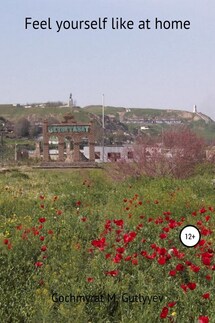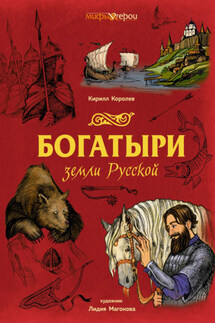Feel yourself like at home - страница 4
Naturally, it is quite understandable that my resulting book does not pretend to be scientific in nature and represent the exact interpretations to the respective country’s traditions. Therefore, exacting critics shouldn’t be in a hurry to find disagreements and/or contradictions. This is the opinion of the author, my own attitude and experiences to this, and my deep and respectful understanding of Turkmen community life. I would even say – this is my invitation to a conversation, an incentive to examine other sources of supplementing information, and to establish a better understanding between cultures. There is a certain abruptness to some of my essays and short stories; some that look like unfinished themes are made intentionally – to think over and find explanations yourself. Then a conversation with a reader can be among equals, not of a mentor with his students, shouldn’t it? That’s why once again I will interrupt this narrative on a half word…
Once again, I will remind you – this is a non-fiction book of my travels, not a detailed journal dissertation.
The Greetings
“A salam is not just yours,
A salam belongs to the Almighty”
A proverb
Do you know any other way to start a conversation, tactfully and friendly, when you meet anyone – be it an acquaintance or a stranger, a countryman or a foreigner, a person of your own tribe or a representative of another ethnic group, – if not with a greeting?
And which form of the address should one select – just “Hello!” or “How are you doing?” – based on a specific situation and for a specific audience?
True, some men and women are able to get in touch with any audience, with people previously unknown or only slightly familiar to them, or to enter into a conversation with a stranger quite easily and unconstrained just at very first minutes of a meeting even without a formal greeting such as “hello”.
As for myself, I might look at them with an admiring envy of their excellent communicative skills, honestly. For I had definite difficulties in my youth, sometimes, to start just an elementary conversation – even with an acquaintance, leave alone a stranger, due to certain features of my personality. However, just those initial seconds and minutes are the most important stages when to create required mood of a meeting, to understand intentions of the visitor and to show your attitude towards him, are not they?
Therefore, naturally, styles and forms of greetings have their precious meaning in any culture, whatever the mentality of its people. That is of course, if one takes the subject much wider, without limiting the discussion exclusively to the complicated manner of the Turkmen in the field of addressing and greeting.
Instead of an expected introduction, which is a common way to start an essay or short story, let the author begin a conversation with the esteemed readers by recalling the old times – my own school years.
I have studied in a secondary school in the former Soviet Union. To those not quite familiar with the practice of those years it has to be explained that, at that period, the most prestigious Soviet schools, throughout the entire territory of the giant country inhabited by various ethnic groups, has instruction in Russian language, and their teaching program was based on the Russian culture. It was so beginning from the elementary classes for almost all secondary schools of the USSR.






